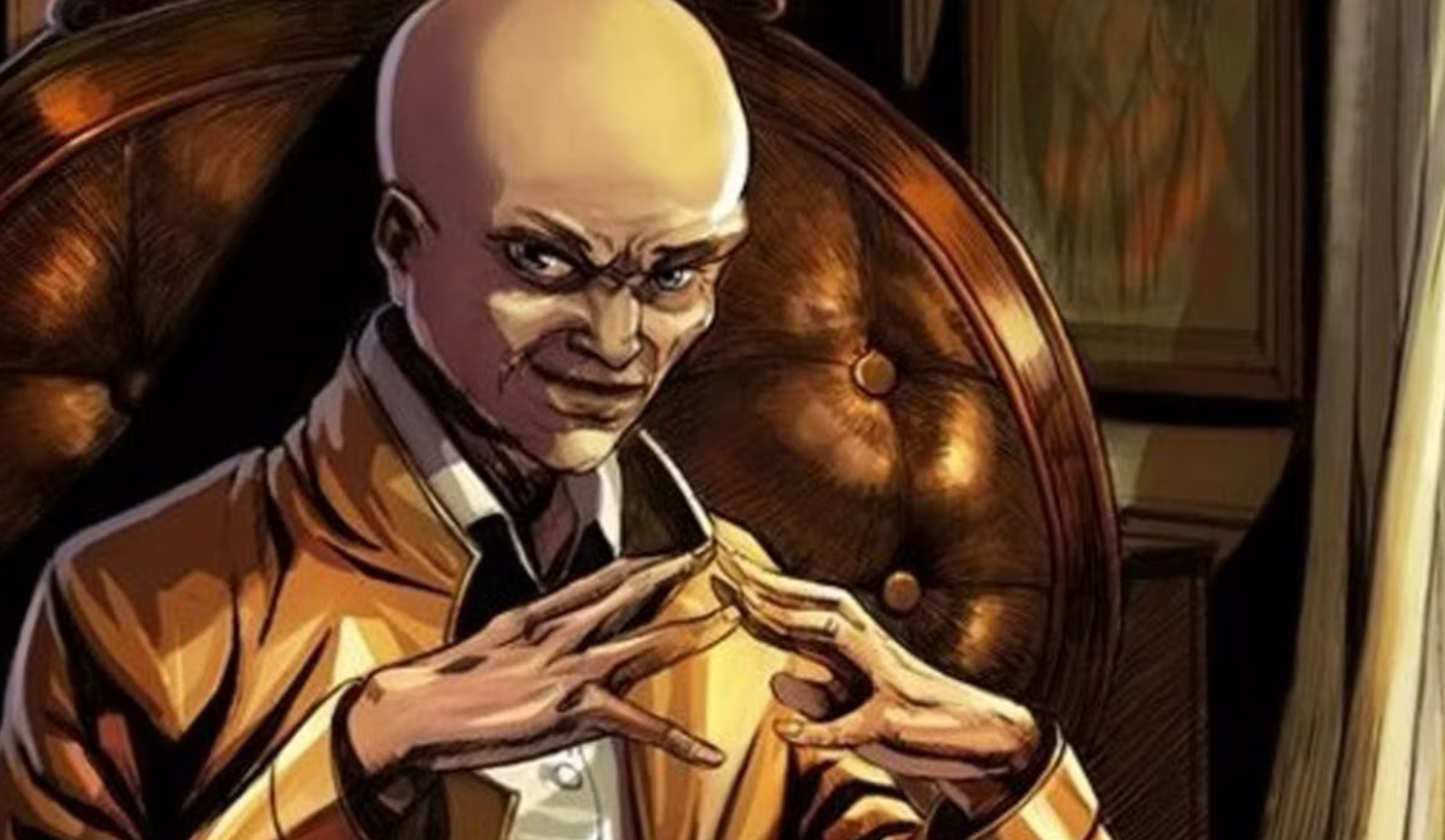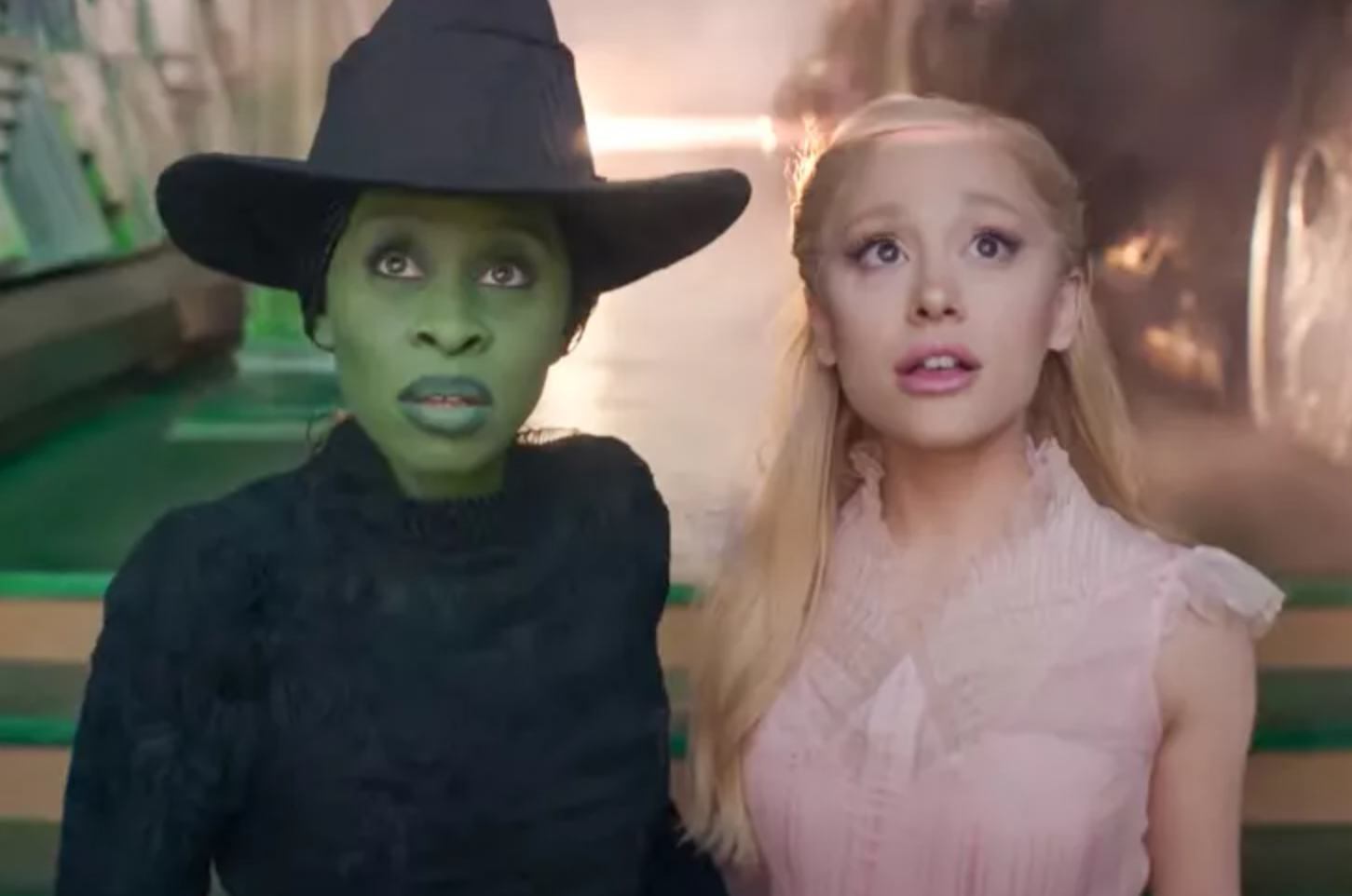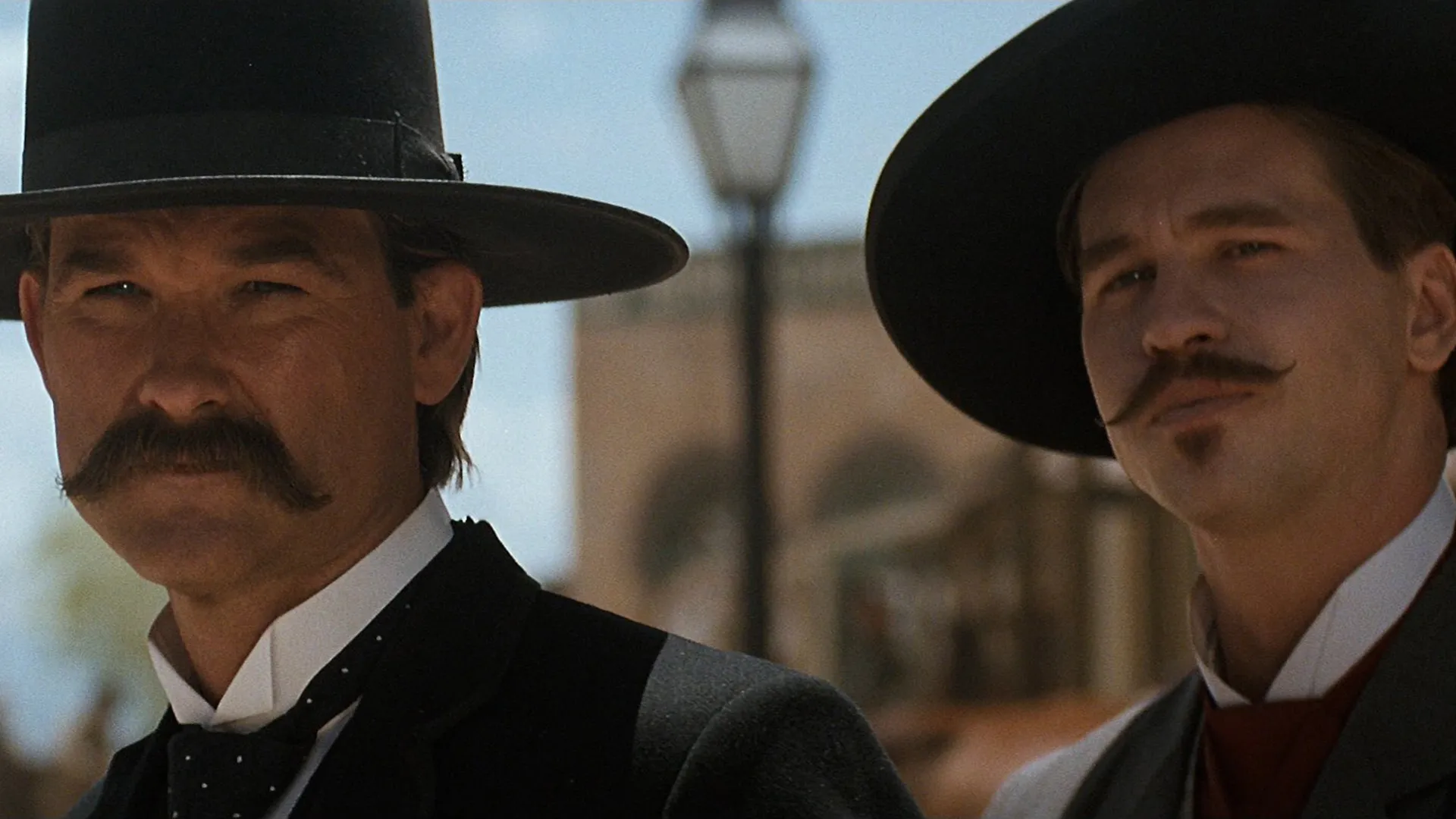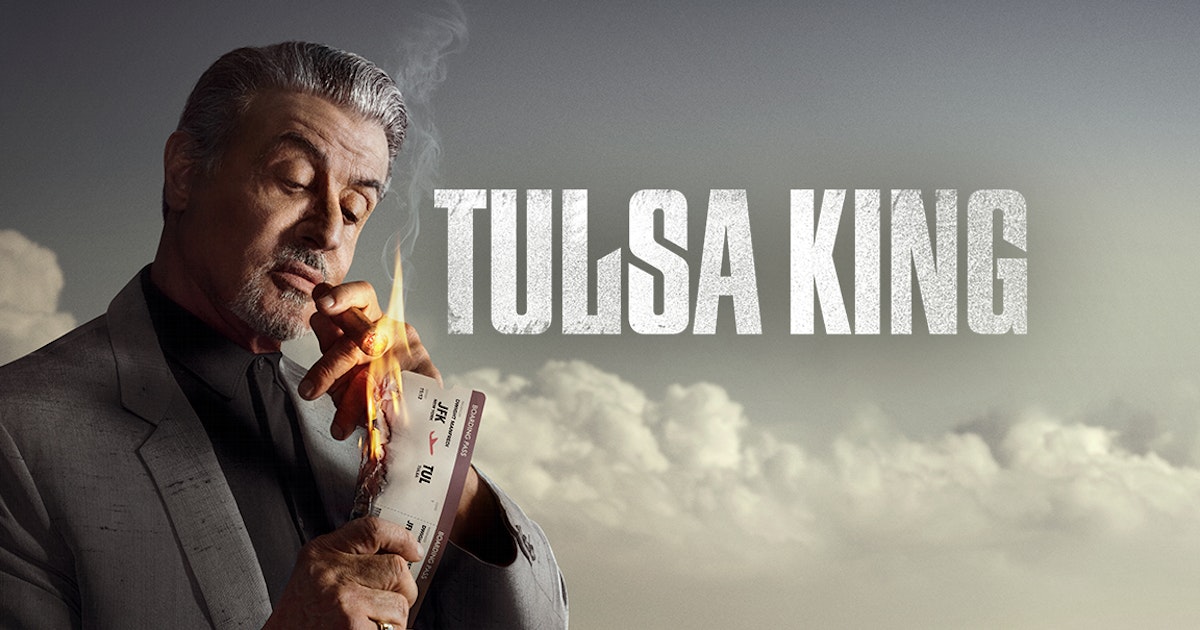Once, the rector of a cathedral in New Jersey nearly ruined the whole world. To attract the future flock to the movement “Catholicism is cool,” the cardinal consecrated the arch of his cathedral and announced that to everyone who enters it, all sins will be immediately written off after death and the lucky one will go to heaven.

The trouble is that two fallen angels, Bartleby (Ben Affleck) and Loki (Matt Damon), who was cast down by God from heaven many years ago, learned about the Cardinal’s venture. They realized: if they, too, manage to get through that arch, God will be forced to return both to their houses. That is, to admit a mistake. What can happen next is scary to think about.
“The essence of all its diversity and magnificence is based on only one principle – the infallibility of God,” explains the angelic chief Metatron (Alan Rickman). “It is necessary to convict Him of a mistake, and reality will tear to shreds: the top will become the bottom, white black, and being emptiness.”
And all over.
There is only one way to save the world: stop the angels. God would have done it in an instant, with one click of his fingers, but, as luck would have it, he disappeared somewhere, so the last hope is for Bethany (Linda Fiorentino), the great-great-great-great-niece of Christ, and her new acquaintances: two sexually anxious prophets, Jay (Jason Muse) with Silent Bob (Kevin Smith), and the black Apostle Rufus (Chris Rock), who joined them, with muse Intuition (Salma Hayek).
Although Bethany has long ceased to be a zealous Catholic, she agrees to lead this motley company and go on an impromptu crusade in New Jersey.
Linda Fiorentino said that Frank Baum’s “The Wizard of Oz” helped her build the image (and the movie adaptation with Judy Garland, of course). The actress presented herself as a kind of matured Dorothy – the only sane woman among losers and mythical creatures.
Bethany, like Dorothy, left the sweet home by the coincidence of fantastic circumstances. She wants to quickly return to her usual life, in cozy Kansas, albeit in an extremely bizarre roundabout way, through New Jersey.
However, the world around her is rapidly changing before her eyes, and life will never be the same.

Smith skillfully, in a detective story, builds a plot and does not reveal all the cards at once. Gradually, in the course of the action, dozens of sudden gaps are discovered in the folds of reality, and the viewer also looks after Bethany.
The list of otherworldly creatures is being replenished (did you know about the Calvary, he is a shit demon?
Did you imagine that the small immigrants from hell are like teenagers playing hockey?). Half a dozen skeletons drop out of the closets – how about, for example, the news that the creator of the movie “Home Alone” sold his soul to the devil in exchange for popularity?
Ordinary people show a mystical essence, and guests from heaven demonstrate human passions and weaknesses: the muse works as a stripper, the seraph is hooked on tequila, and the demon Azrael considers central air conditioning to be the highest earthly bliss.
It turns out that there were not twelve apostles, but thirteen, only the last was not mentioned, because, they say, he was black.
It turns out that God can forget about the fate of the universe for the sake of domino games. And God, by the way, is a woman (here she is played by the famous rock singer Alanis Morissette).
Alanis Morissette in Dogma will not be able to sing. The voice of God cannot be sustained, so the angel Metatron speaks for him (Alan Rickman)In a cursory retelling, many of the characters in this film seem like ready-made candidates for a psychiatric hospital, and the plot looks at least eclectic and almost blasphemous.
The charm of “Dogma” was not immediately appreciated by the public of the late nineties – for example, on the Russian site “Kinopoisk” there were three indignantly offended reviews for one enthusiastic review; not to mention the clerics’ attempts in the director’s homeland to boycott the demonstration of the picture.
Nevertheless, before us is the most integral and, perhaps, the most perfect directorial creation to date by Kevin Smith.
And in his previous films (“Clerks,” “Chasing Amy,” “Party People from the Supermarket,”) Smith hid the unforgettable romance behind witty gags on the verge of a circus buffoonery.
And in the fantastic “Dogma” the author, not limited by the scope, comes off like a sweet tooth, locked in a candy store for the night, and left to himself.
The idea that the burden of responsibility for the whole Universe can suddenly fall upon an ordinary person is not new for fiction, however, in Dogma it is richly arranged.
The director allows himself almost everything: terrible miracles in the style of “Exorcist”, fights in the manner of “Indiana Jones”, intellectual provocations a la Marcel Duchamp side by side with sorted humor in the spirit of Jerry Lewis and at the same time a sad metaphor for the beyond, as in Bergman’s “Seventh” print. “

As if afraid of being known as a bore, Smith seasoned the film with honed comic dialogs. The phrases of “Dogma” are not without reason dispersed into quotes. “You are a man. The consequences are regrettable.
Conscience and fragility ”; “God also has a sense of humor. Take at least a platypus ”; “They were sent to hell?” “Worse, in Wisconsin”; “I repeat, this is not a training alarm, this is the end of the world.
We ask you to leave the hospital in an organized manner. Thank”; “Here are the people! Why didn’t they make a movie, you don’t need to know that? ”; “Why do you need a gun? Crush them with intelligence! ”; “Every moron who claimed that the Lord spoke to him actually heard my voice. Or your imagination. ”
The last quote is from Metatron, “the voice of God,” and it seems that it is to him that the author entrusts some of his cherished thoughts.
“Faith is like a glass of water. As a child, it is tiny and full. But the glass grows with age, and that water barely covers the bottom. Periodically, the glass must be filled. ” How? A universal recipe from Kevin Smith, we, of course, will not wait.
However, behind the outward signs of several mass genres – from fantasy to pop shows, from road movies to classic action films – a philosophical parable is hidden in Dogma, albeit dressed in a colorful jester costume.
And, by the way, quite delicate in matters of faith, despite ostentatious rebellion. To the place of the future feat, Bethany will tear through the thorns of doubt.
The purpose of her journey is not so much strengthened by faith, as, quoting the heroine herself, “enriched with ideas.” In this way, the heroine’s journey is not limited to the “geographical” movement in space, from one state to another.
It is also a path of knowledge, a path of internal transformation, rethinking of the old experience, and gaining a new one.
Like a midlife crisis, a crisis of faith at least once in a lifetime catches up with any thinking person, be it a Christian, a true Muslim, an Orthodox Jew, a Buddhist, an agnostic or an atheist. And then a person asks the question “Why are we here?” The main character will also ask him in the finale, after saving the world, deaths, resurrections and meeting with God. And in a moment he will realize that the answer (or at least part of it) is in the very possibility of posing such a question.









